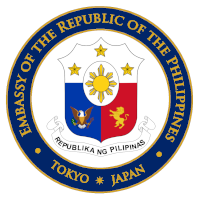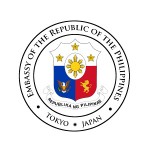So the Public May Know: On the Conduct of the Recent Elections in Japan
The Manila Standard story “PH Embassy in Japan Accused of Irregularities” by-lined by Sara Susanne D. Fabunan on 12 May 2016 and also carried by The Manila Bulletin was full of misleading, patently baseless and defamatory allegations of bias by Embassy personnel that could only have been put forward with malice by the paper’s quoted source, Ms. Socorro “Yuko” Takei.
The Philippine Embassy in Tokyo wishes to be clear: there could not have been, nor is there any bias against Vice Presidential candidate Ferdinand Marcos, Jr. In compliance with COMELEC instructions and guidelines, the canvassing of votes in Japan, combining the returns for both the Tokyo and Osaka precincts — was open to the Filipino public and conducted in the presence of watchers and counsel, including the watcher representing candidate Marcos, Jr. as well as from other parties and accredited groups such as the PDP-Laban, Aksyon Demokratiko, the Liberal Party and Migrante, all of whom can attest to the transparency of the electoral process as conducted by the Embassy.
To set the record straight vis-à-vis Ms. Takei’s deliberately false claims:
- “The embassy, she said, failed to issue and give them the Certificate of Canvass”: A copy of the Certificates of Canvass (COC) was not issued to the watcher of Senator Marcos because under COMELEC rules, these could only be issued to the watchers of accredited major national parties and not to the watchers of individual candidates. Be that as it may, all watchers present, including that of Senator Marcos, were provided a Canvass Report which, while of a different character, is effectively a duplicate of the COC. Furthermore, the watcher of Senator Marcos also signed the COC, in effect attesting to the veracity and accuracy of the COC.
- “The canvassing of votes in Tokyo was finished but the Certificates of Canvass could not be issued because the votes from Osaka have yet to be canvassed”: This statement by Consul General Marian Jocelyn Tirol-Ignacio, Chairperson of the Special Board of Canvassers (SBOC) for Japan, was cited by Ms. Takei in her strained attempt to impute irregularities at Post. The SBOC for Japan was mandated to canvass and consolidate votes cast for the entirety of Japan based on election returns (ER) submitted by the Special Boards of Election Inspectors (SBEI) constituted at the Embassy in Tokyo and the Consulate General in Osaka. The issuance of partial COCs or the transmittal of incomplete results garnered only from Tokyo, was not permitted by the rules. Clearly, SBOC had no alternative but to adjourn upon completion of its canvass of Philippine Embassy-Tokyo ERs, and await those from the Consulate General in Osaka, which had to be physically delivered to Tokyo by Consulate Officials, who could only travel to Tokyo upon completion of their own counting and preparation of ERs, and naturally, subject to the day’s bullet train schedules to Tokyo. For the record, the SBEIs of Tokyo and Osaka both completed their ERs on 10 May, and the Osaka ERs were brought to Tokyo and received by the SBOC by late evening of that same day. Notices to watchers and to the public were issued, and canvassing promptly resumed on the morning of 11 May.
Ms. Takei’s malicious account also deliberately skips on certain important details, most notable of which is her being a Japanese citizen. Section 24 of Republic Act No. 9189 (Overseas Absentee Act of 2003) provides that “it shall be unlawful…for any person who is not a citizen of the Philippines to participate, by word or deed, directly or indirectly through qualified organizations / associations, in any manner and at any stage of the Philippine political process abroad, including participation in the campaign and elections.” Ms. Takei had long renounced her Philippine citizenship. She has not reacquired Filipino citizenship, as Japan does not allow dual citizenship. As such, she was legally barred from taking part in the electoral process, in whatever role. And yet, even as the provisions of the law were read to her, and despite the entreaties of her fellow watchers, she repeatedly tried to embed herself among the accredited watchers at the Embassy, registering views and objections during proceedings, and defiantly ignoring orders to vacate the polling places, canvassing area and Embassy premises. It took a while before she departed the premises, something that she clearly resented.
The Embassy encourages Ms. Takei, who professes to be an advocate of clean fair and honest Philippine elections to undergo serious self-examination, review the provisions of the law and abide by them. If she persists in her illusion of Embassy bias, we challenge her to have all the other watchers accredited by the Embassy to support her allegations.
Finally, the Embassy requests Ms. Takei to seriously take to heart Section 261(z) (11) of the Omnibus Election Code, which states that an election offense is committed by “any person who, for the purpose of disrupting or obstructing the election process or causing confusion among the voters, propagates false and alarming reports or information or transmits or circulates false orders, directives, or messages regarding any matter relating to the printing of official ballots, the postponement of the election, the transfer of polling place, or the general conduct of the election.”
The Embassy takes the opportunity to urge the Manila Standard to strive to present opposing views from the beginning, especially when the one being given space involves accusations resting on flimsy grounds. Embassy officials exhausted from 36-hours of straight election duty would have gladly further foregone much needed rest to address the flimsy but unfortunately harmful allegations leveled by the Japanese national Ms. Takei, before publishing its 12 May story.
The Philippine Embassy in Tokyo stands by the neutrality and professionalism by which its Electoral Boards had conducted the month-long voting and the canvassing, and had safeguarded the integrity of the electoral process so that the election results here might truly reflect the will of Filipino voters in Japan.
































